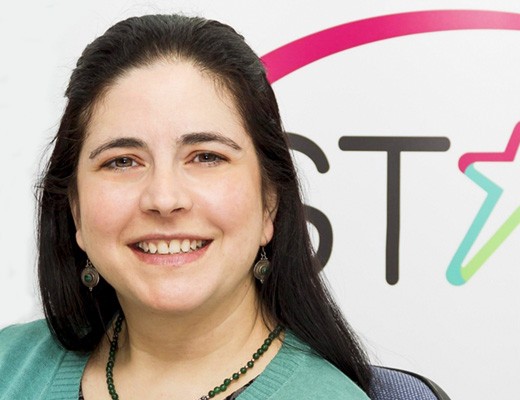Is there a marketer in the house....?
The answer to the question every marketer dreads...
You're at a social event, enjoying meeting people in 3D again, when somebody asks what you do. You say, "Oh, I'm a marketer," and you spot that look in their eyes where they glance down, shuffle their feet, perhaps cough a bit nervously.
Then they say, "Oh, I run a club/society/event/small business, and I need to do some marketing. What should I do?"
In this podcast, I explain the questions to ask and the way to handle this. One obvious answer is to hand over a business card and explain what your hourly rate is for consultancy. But sometimes someone is from a small charity or a community organisation and you want to be able to help. So what are the steps.
Firstly, you need to dispell any myths about marketing, such as "Do I need to go on TikTok", "I don't know how to do social media".
Ask what is the problem they want marketing to solve?
A small community music group asked me for advice on publicity. The Pandemic has devasted their finances and membership and prevented meaningful meetings for nearly two years. My question was:
"What are you actually trying to achieve here? Is it that you want more bookings? You want to do more performances so you are trying to appeal to the people that are doing the bookings?
Is it that you actually want a wider audience so that when you are booked to do a performance, you can attract people to come along?
Or is it that you just need new members because it's a small community group and you need more people, more musicians and more players?"
All of those are different objectives and all of those have different target audiences.
Of course, what I got was, "Oh, I need to do all of that." That's normal, non-marketing speak for fear of missing out. I want to do everything. So push "which one matters most now?"
In the music groups case, they were short of players. Pushed they could tell me the type of players they needed - the instruments, the level of skill and how potential players should contact. Now we have a marketing strategy and the tactics can come easily from that. Where do new players go to look for groups to join? What can we say to attract them? and so on.
You can hear the podcast and the transcript is below:
Kiran Kapur (00:13):
Hello and welcome. This week is quite a short podcast, but we're going to discuss the question that all marketers dread.
You're at a social event, you enjoy meeting people in 3D again, when somebody asks what you do. You say, "Oh, I'm a marketer," and you spot that look in their eyes where they glance down, shuffle their feet, perhaps cough a bit nervously. Then they say, "Oh, I run a club society event, small business, and I need to do some marketing. What should I do?"
(00:47):
We all get it and, at the moment, you are likely to get it more with so many small businesses struggling and with so many clubs and societies trying to restart after COVID restrictions. There are many more people desperate for ideas about attracting new members, raising funds, raising their profile, or just generally keeping going.
(01:09):
So if you do get this question, what do you say? The obvious answer is, "Here's my card and my consultancy fees are," but you may find, as I have recently, that the person asking you is running a small community group or a charity, and you actually want to help.
(01:28):
Here is a short guide on what to do. Essentially, clutching your drink and your food and juggling all of that, you are going to need to walk and talk this slightly desperate person who thinks that you, as a marketer, may have the answer. You're going to walk and talk them through a marketing plan.
(01:48):
Now planning can seem terribly abstract and when you do it, and when it's taught to you, when you do it at work, it can seem like a sort of cycle of things we have to do. But to your questioner, taking them through some basic planning questions can actually have some really big implications for them.
(02:08):
Your first part is you're going to untangle any weird ideas that they have about marketing. I've actually been approached recently by three different people running three different organisations, which is partly what started this thought for this podcast, and the comments that I got were things like, "Oh, well, I don't want to go viral. Do I need to do TikTok? Do I need a celebrity to endorse what I'm doing? And, oh, I don't want to be on video."
(02:36):
None of those are actually the place to start. You need to start with what is actually the problem? What's the issue? What does this person think marketing is going to help with?
(02:49):
Be prepared for some very, very vague answers here. Ask most people who their target audience is and they say everyone. It's a classic fear of missing out. But you as a marketer know that this is silly. If you're appealing to everybody, you risk appealing to no one.
(03:03):
So you need to go back to the first stage. What is the problem? What's the issue? What are they trying to achieve?
(03:11):
I was asked very recently by somebody running a music group, a community music group, for advice on publicity. Again, juggling my glass of wine, I said, "Okay, what are you actually trying to achieve here? Is it that you want more bookings? You want to do more performances so you are trying to appeal to the people that are doing the bookings? Is it that you actually want a wider audience so that when you are booked to do a performance, you can attract people to come along? Or is it that you just need new members because it's a small community group and you need more people, more musicians and more players? All of those are different objectives and all of those have different target audiences."
(03:54):
Of course, what I got was, "Oh, I need to do all of that." "Yes, right. Okay, but which one matters most now?" The answer from this particular organisation was, "Well, actually, post-COVID, we're very short of members. Lots of people gave up playing instruments in lockdown, and so we need to encourage people to come back and play."
(04:17):
Okay, so now I have a defined problem. We're reaching potential new players, members, so now I need to know what the product is. What is it that we're actually offering? What type of players are we looking for? Are there any restrictions? Do we take beginners? Do we take people that used to play? Do you take people that are competent? Do they have to pass an audition? What is it that you are actually looking for this new member to be? It's a music group. What are the vacancies? What type of instruments do you want them to have?
(04:54):
Once we've got through that, still clutching my glass of wine, I've got the defined problem, the product, the audience, and the process that you want that person to do so they need to email something, or go via a website, or upload a CV, or send in a music track of them playing. I mean, whatever it is that the organisation wants.
(05:19):
Now, I've got all of that and we know where to target. It makes life so much simpler. Then you can say, "Right, you know what you're looking for. Now, where do these new players go to look for organisations to work for? And you've got something to work with." Now you're into the sort of tactical level of, do we go for publicity? Are we going to get something in some local papers? Do you just need posters up in the local library?
(05:44):
But you've defined the problem. And more importantly for the other person is they understand if the marketing's working, they're going to get more of the right type of member. That's what they're looking to achieve.
(05:56):
Sometimes, however, you can find a person will tell you that they are rubbish at marketing, but actually they are really good at it.
I attend twice a year, a small festival. There's 150 passionate people that go. There are new people every time. There are returners. There are advocates. We all love this festival. Once you've gone, you want to go back again and of that 150 is capacity for the venue.
(06:25):
But the organiser sat next to me around a campfire, clutching a pint this time, rather than some wine and said, "I'm rubbish at marketing." And I had to do a complete step-back and go, "You've got a brand, you've got loyal advocates, you've got passionate people who are talking about you."
(06:46):
"Oh," he said, "but I don't do any social media." "Oh, you don't need to. Your loyal supporters have created the social media groups for you. We all share information. The groups are available. People talk about it, people advocate for you." Frankly, I felt that he'd created something that marketers could learn from and he'd hit capacity. He was never struggling with selling tickets.
(07:11):
So then the question was, "Okay, so what do you think you're bad at?" One was coming back to this idea of, "Oh, what do you think marketing should be?" "Oh, well I don't do social media, therefore, I'm bad at marketing." The other one was actually, it wasn't a marketing question. It was a question about the product. Was there anything else of the product he should be offering? Was there any other way of monetising the product that he was offering? Then you are into a conversation about merchandise basically, or additional workshops that you can offer that might bring in more revenue.
(07:49):
Again, it's back to the you are going to need to kick out any weird ideas that people have about marketing. "Do I need to go on TikTok" is one of my classic bug bears. Only if that's where your target audience are. Then take them through very quickly, you are standing around in a social situation, some basic questions about "What is it you're trying to achieve, who is your target audience?" Then when they've got the strategy in place, they can usually go away and work out the tactics.
(08:23):
Also, be prepared that you may get some of this at work. We've all been in this situation where somebody wanders into the marketing department and goes, "We need to do some marketing, or we need to do some publicity, do some social media, do some of that TikTok stuff." It's exactly the same process. Go back to what is the problem we are trying to actually deal with here. Once you've defined the problem, you can define the strategies and the tactics and everything else that comes out of that.
(08:51):
Hopefully, that's been helpful advice for any social events that you have over the summer. I once complained that nobody ever shouted out, "Is there a marketer in the house?" in the way they shouted out, "Is there a doctor in the house?" But I am definitely recently feeling some desperate people are turning to marketers for advice and guidance over their small community groups or over their small businesses where they've been hit by the pandemic, they're being hit by the rising cost of living, and they are seriously worried about continuing their organisation. So I do think it's part of marketer's armoury to actually help and, hopefully, that's given you some thoughts.
(09:31):
Next week, we go back to our normal interview format, and I welcome back Charlotte Lestienne and Nigel Clark to talk about how to start in marketing in sustainability. Then the week after, we are going to be looking at marketing in the construction industry.
I'll catch you then.



